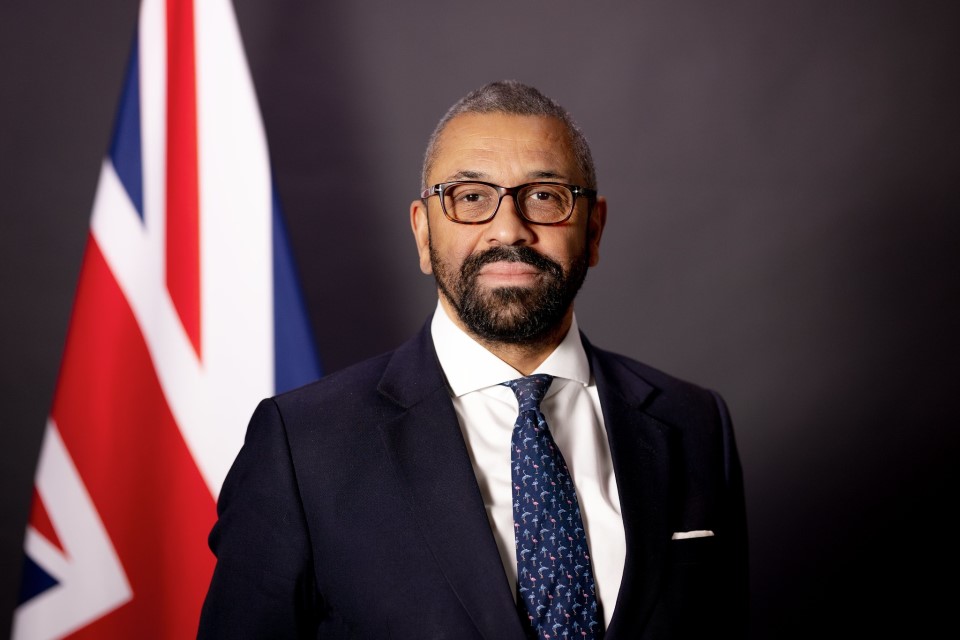Statement by the Minister for the Middle East and North Africa at the High-Level Event on Anticipatory Action
Minister James Cleverly virtually delivered the following remarks to the UN OCHA High-Level Event on Anticipatory Action.

Thank you.
Friends, colleagues, the world faces an unprecedented humanitarian crisis driven by conflict, COVID-19 and climate change.
Developments in science, technology and data mean we can identify risks of shocks better than ever before. And yet, still - too often - we wait for floods, droughts and diseases to strike before we respond.
In South Sudan, over a hundred thousand people face famine-like conditions driven by years of conflict and violence. The situation has been compounded by a delay in response to extraordinary flooding.
In Madagascar, almost half a million people are now one step from famine, after an inadequate response to successive droughts.
We need to do humanitarian aid differently.
We need to act ahead of shocks, to mitigate their impact.
We must plan and agree how we will respond to the forecast of shocks, and we must make sure the money is in place to deliver that response.
It is especially important that we support countries in conflict, which are least able to anticipate and respond to shocks.
We know that this proactive approach can save lives, it can protect development gains and offer a smarter use of our collective finance.
In Bangladesh, cash transfers supported by the UN Central Emergency Response Fund - the CERF - helped households evacuate and save livestock ahead of the 2020 monsoon. That response cost $10 less for each person supported, than the 2017 response.
This works in conflict situations too. In Somalia, with food insecurity projected to rise last year, the CERF quickly allocated $15 million for early action, from locust spraying to rehabilitating wells.
But we need to scale this kind of activity up.
In the G7 Famine Prevention and Humanitarian Crises Compact, we committed to support the UN to expand anticipatory action.
The UK has provided £44 million to CERF and £48 million to the country based pooled funds so far this year to deliver on that very commitment.
We are also working with the Red Cross and civil society to support a more locally led approach.
We provided £1.5 million to the Disaster Relief Emergency Fund this year, supporting its work on forecast-based financing.
Earlier this year, we committed £12 million to the Start Fund, which allocates almost a third of its funds to anticipatory action.
And I am pleased to announce, today, that we will provide an additional £1.8 million to the Start Funds in Bangladesh and Nepal, for anticipatory action and disaster response by national and international NGOs.
But this is not just about the humanitarian system.
In the face of intensifying climate impacts, the whole aid system needs to come together to avert, to minimise and to address the threat of loss and damage.
We will need International Climate Finance, the resources of the International Financial Institutions, insurance and other financial instruments.
At the G7 Leaders’ Summit, the UK committed to £120 million for regional disaster protection schemes across Africa, the Caribbean, South-East Asia and the Pacific.
This support contributes to the Risk-Informed Early Action Partnership goal of making one billion people safer from disasters by 2025. I encourage others to align their commitments with REAP’s ambitious targets.
We are also working with the World Bank to help governments deliver through their own national systems.
I was pleased to see that the World Bank recently doubled its Early Response Financing to $1bn for the rest of IDA19.
But the IDA20 negotiations provide a unique opportunity for us to go further. A dedicated financial envelope and specific metrics for crisis preparedness are essential to investment in government systems to deliver anticipatory action.
We will also provide an additional £1.3 million to the Start Network for their risk finance work in the Democratic Republic of the Congo, Pakistan and the Philippines. Our support will allow Start to take out drought insurance cover in Zimbabwe, ensuring that they have the funds to pre-empt damage and to help people get back on their feet fast when disaster does strike.
Our shared commitment to this work is a strong foundation. But to scale up, we need a clear and common understanding of what we have already delivered and what more is needed.
We are working with the Centre for Disaster Protection on a methodology to assess exactly how much of our funding is pre-arranged for action ahead of crises – not just from our humanitarian support but from all our development assistance.
The UK will pilot that assessment following today’s event and I invite other Member States to join us.
As we build towards COP26 in November, now is the time to scale up anticipatory action, and listen to communities’ own plans to reduce climate impacts.
Thank you all for your commitment on this shared endeavour and I look forward to your robust support during the event today.
Thank you.